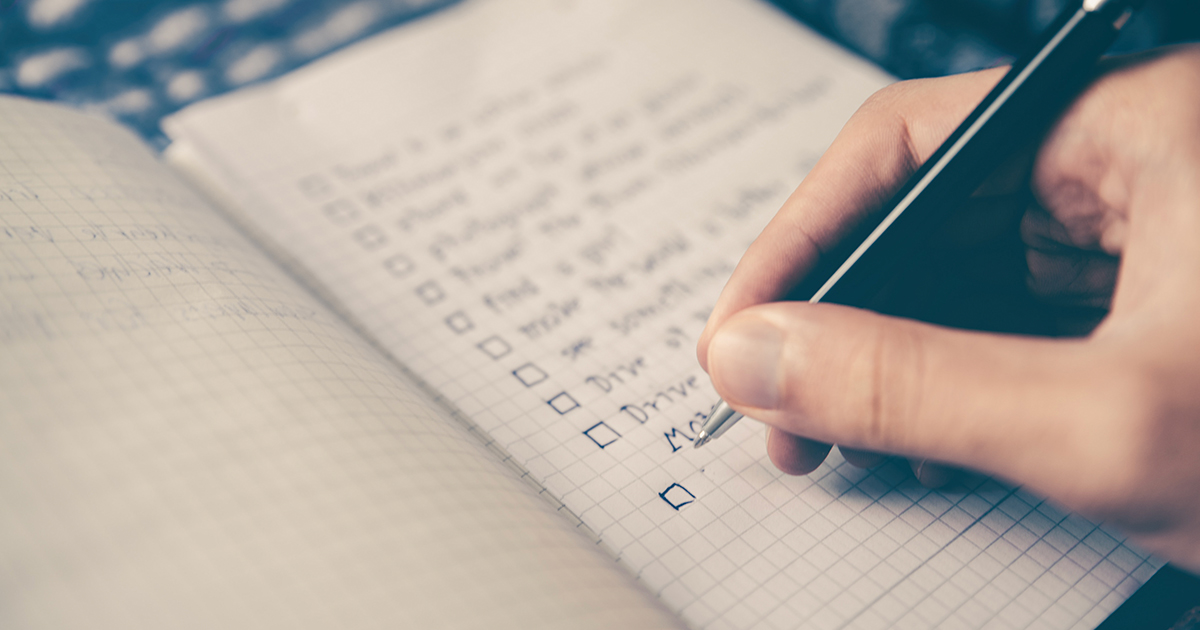Are you tired of constantly running out of money before the month ends? You’re not alone, as recent statistics show that nearly half of UK residents have less than £1000 in savings (citation).
This post will guide you through mastering budgeting to take control over your finances and break free from pay check-to-pay check living. Ready to transform your financial future? Let’s dive in!
Key Takeaways
- Budgeting is the process of planning how to use your money and helps you track your spending and avoid overspending.
- By having a budget, you can know where your money goes, reduce financial stress, reach financial goals faster, and save for emergencies.
- To create an effective budget, assess your income, categorise expenses into fixed and variable costs, track your spending regularly, and set clear financial goals.
Understanding the Importance of Budgeting
Budgeting is the process of managing and allocating your income to effectively control your expenses and achieve financial stability.
What is budgeting?
Budgeting means planning how to use your money. You note down what you earn and then plan out where each penny goes. It helps to keep track of your cash, so you don’t spend more than what comes in.
Budgets are great for making sure there’s enough money for the things that truly matter. It lets you know if you need to earn more or spend less!
Benefits of budgeting
Budgeting gives you the power to take full control of your money. Here are some solid gains you can get from it:
- You know where your money goes. A budget helps track spending, showing clear patterns over time.
- It promotes peace of mind. With a budget, worry about money lessens.
- Budgets push towards money goals faster. They serve as a roadmap for financial aims.
- They help stop impulse buying. Knowing your limits reins in unnecessary spending.
- Budgeting means fewer debts or late fees to worry about because you plan ahead.
- It helps build a strong saving habit by assigning a portion of income to savings regularly.
- Your chance for better sleep increases since finance – related stress decreases.
- You can be ready for sudden costs if an emergency fund is part of the budget plan.
How to Create an Effective Budget
Assess your income, categorise expenses, track spending, and set financial goals.
Assessing your income
First, know how much money you get each month. This can be from your job or any other source. Add up all the cash you expect to come in during a month. Make sure to count every pound and penny!
Categorising your expenses
Sort all your costs into groups. There are fixed costs and variable costs. Fixed costs do not change each month. They include your rent or mortgage, car payments, insurance and phone bills.
Variable costs can go up or down each month. These include things like food, gas, clothing and fun stuff like going to the movies. You need to know where your money is going so you can control it better.
Tracking your spending
Tracking your spending is part of mastering budgeting. Here are the steps to do it:
- Keep all receipts from purchases.
- Use a money tracking app to record all expenses.
- Write down what you buy each day in a notebook.
- Check bank statements every month.
- Put cash and card payments in different categories.
- Look at where most of your money goes.
- Find out if you are spending too much on non – essential items.
- Decide if you need to cut back on certain things.
- Save more money by stopping wasteful spending.
Setting financial goals
Having clear financial goals is key in budgeting. Goals guide where your money goes. They could be short-term, like buying a new bike next month. Or long term, such as buying a car after two years or saving for retirement.
Be sure these aims suit what you want and need in life. Write them down and keep them in mind when planning your budget. This way, every penny gets you closer to your dreams!
Tips for Sticking to Your Budget
Prioritise expenses, cut back on non-essential spending, save for emergencies and future goals, and regularly review and adjust your budget. Take control of your finances by mastering these budgeting strategies.
Read more to learn how!
Prioritising expenses
To control your money, you need to know what’s most important. This is called prioritising expenses. Food and house costs come first because they are needs. After that, think about wants like new clothes or toys.
The key here is making smart choices with the money you have. To master budgeting, make a list of all the things you spend on each month. Put them in order from most needed to least needed.
Cut out or limit spending on things low on the list as this will help keep your finances stable.
Cutting back on non-essential spending
To stay on track with your budget, it’s important to cut back on non-essential spending. This means reducing expenses that aren’t necessary for your basic needs or financial goals.
One way to do this is by identifying areas where you can make small changes, such as eating out less often or finding cheaper alternatives for entertainment. It’s also helpful to prioritise your spending and only buy things that are truly important to you.
By cutting back on non-essential spending, you’ll have more money available for savings or paying off debt, helping you achieve financial control and stability.
Saving for emergencies and future goals
Saving money is important for emergencies and future goals. Here are some tips to help you save:
- Set aside a portion of your income each month for emergencies and future expenses.
- Create a separate savings account specifically for these savings.
- Automate your savings by setting up automatic transfers from your checking account to your savings account.
- Cut back on unnecessary expenses to free up more money to save.
- Look for ways to increase your income, such as taking on a side gig or freelancing.
- Prioritise saving over spending on non – essential items.
- Consider putting your savings into an interest – earning account or investment to grow your funds over time.
- Review your budget regularly to ensure you are allocating enough towards saving for emergencies and future goals.
Regularly reviewing and adjusting your budget
Regularly reviewing and adjusting your budget is crucial for maintaining good financial control. By taking the time to review your budget on a regular basis, you can ensure that it accurately reflects your current income and expenses.
This allows you to make any necessary adjustments to stay on track with your financial goals. Whether it’s an increase in income or unexpected expenses, regularly reviewing and adjusting your budget helps you adapt to changes in your financial situation.
It also enables you to identify areas where you may be overspending or where you can cut back, giving you more control over your finances. So, make it a habit to review and adjust your budget regularly for better financial management.
Improving Your Financial Situation Through Budgeting
Budgeting can improve your financial situation by helping you manage debt, save for the future, make wise investments, and build an emergency fund.
Debt management
Debt management is an important aspect of budgeting that can help you take control of your financial situation. It involves effectively managing and paying off any debts you may have, such as credit card debt or loans.
By creating a realistic budget and allocating a portion of your income towards debt repayment, you can gradually reduce your debt over time. This may involve making consistent payments, negotiating with creditors for lower interest rates or payment plans, and prioritising high-interest debts first.
With proper debt management, you can work towards becoming debt-free and achieving greater financial stability in the long run.
Saving for the future
Saving for the future is an essential part of budgeting. It involves setting aside money to use later on, whether it’s for emergencies or long-term goals like buying a house or retirement.
By saving consistently and making it a priority, you can build a financial cushion that provides stability and peace of mind. It’s important to regularly review your budget and find ways to cut back on unnecessary expenses in order to free up more money for saving.
Additionally, consider automating your savings by setting up automatic transfers from your pay check or checking account into a separate savings account. This way, you won’t be tempted to spend the money before saving it.
Investing wisely
Investing wisely is an important aspect of improving your financial situation through budgeting. It involves making smart choices with your money to grow it over time. By investing in stocks, bonds, or other financial instruments, you can potentially earn a return on your investment and build wealth for the future.
However, it’s crucial to research and understand the different investment options available and assess their risks before jumping in. diversifying your investments is also recommended to minimise risk and maximise potential returns.
So be thoughtful about where you invest your money as part of your overall budgeting strategy for long-term financial stability.
Building an emergency fund
Building an emergency fund is a crucial step in mastering budgeting and taking control of your finances. An emergency fund is a savings account specifically set aside to cover unexpected expenses, such as medical bills or car repairs.
By consistently contributing to this fund, you can create a safety net for yourself and avoid going into debt when emergencies arise. Aim to save at least three to six months’ worth of living expenses in your emergency fund so that you’re prepared for any unforeseen circumstances.
Remember, building an emergency fund takes time and discipline, but the peace of mind it provides is well worth the effort.
Conclusion
In conclusion, mastering budgeting is crucial for taking control of your finances. By creating an effective budget and sticking to it, you can prioritise expenses, cut back on non-essential spending, save for emergencies and future goals, and improve your overall financial situation.
With discipline and careful monitoring of your money, you can achieve financial stability and freedom. Start budgeting today!
Frequently asked questions
What is personal finance management?
Personal finance management is about making plans to control your money. It includes things like budgeting tips, expense management, and using budgeting tools.
How can I reach financial freedom?
You can reach financial freedom by mastering budgeting, keeping a track of your spending, and keeping good financial discipline.
Can budgeting tools help me to manage my finances better?
Yes! Budgeting tools make it easier for you to handle your money. They guide you in making smart decisions on spending and saving.
What are some key aspect of financial planning?
Key parts of financial planning include being aware of how much money comes in and goes out each month, setting goals for the future, saving enough so you’re ready if something bad happens.
More from the Blog
Hey there, amazing blog visitors!
We hope you’ve been enjoying the content we’ve been sharing with you. It’s our mission to provide you with valuable information, tips, and insights that make a positive impact on your life.
If you’ve found our blog helpful, and if you’d like to support us in continuing to create high-quality content, please consider leaving a donation. Every contribution, no matter how big or small, goes a long way in helping us maintain and improve our blog for you.
Warm regards,





